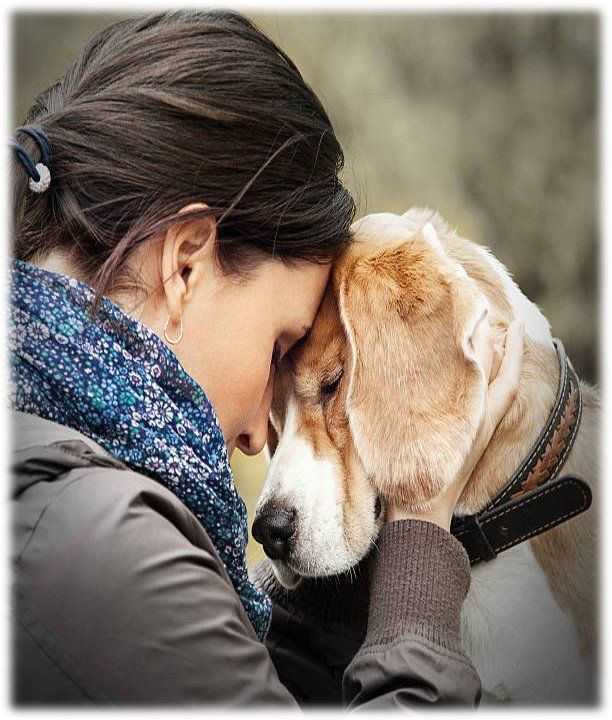When it comes to protecting your pet,
no one does it better.
Free Consultation
Pet Trust Specialist
Who Will Care For Your Pet When You Are Gone?
Many people take exceptional care of their pets but fail to account for the needs of their pets in the event of their own incapacity or death.
The incapacity or death of an owner can be very traumatic to pets, who do not have the ability to communicate their needs. For many people, their pets are as closely held to their hearts like their children. For others, their pets are their children. However, the law identifies pets as property, and property cannot legally own property such as money. Despite this, you do have the ability to provide for your pet upon your passing by ensuring your pet is placed with a person or organization that cares for your pet, and that your pet’s new caregiver has the resources available to provide your pet with a quality life.
So, what happens when you suddenly or not so suddenly pass away? Who will care for your pet when they need comfort most? Would your friends and family know what foods to feed or what medications to give? How can you ensure that your pet continues to receive the love and care they need? Your pets will need immediate care when you are gone and that means you will need short- and long-term solutions when estate planning for your pet.
Taking care of your pet after your death is an integral part of estate planning. By creating a thought-out and documented plan, you can ensure your pet will be taken care of in the short-term and long-term following an unexpected tragedy. A Pet Trust from Blade & Blade PA will ensure care for your pets when you’re gone.
What a Pet Trust Can Do for You and Your Pet
A Pet Trust is a powerful legal document that gives you the ability to not only set aside funds for your pet’s future care but also stipulate exactly what kind of care you expect your pet to receive.
- Complete control over every aspect of your pet’s future care
- Stipulate their foods, their schedules, even their veterinarian
- Revocable, so you can change and amend your trust at any time
- Designate a separate trustee to oversee the funds and create a “checks and balances” system within your trust
- Can be activated if you become disabled or incapacitated (a Will can’t do that)
And because a Pet Trust is fully enforceable by the courts, you can rest easy knowing that your pet’s well-being will always be safe.
Is My Pet Really at Risk?
According to the animal welfare organization “2nd Chance 4 Pets,” over 500,000 pets are abandoned each year due to the death or disability of their human companions. That’s 500,000 too many. What’s worse is that those pets could have been protected with just a little planning.
- What will happen to your pet if you become disabled?
- What if you’re no longer able to speak for yourself?
- How will the courts know what to do with your pet?
- How can you make sure that your pet doesn’t end up in a shelter or abandoned?
With a Pet Trust, you can prevent your pet from becoming another statistic. Call us today and together, we’ll make sure your pet has a long, happy, and healthy life.
Considerations for Your Pet Before Estate Planning
Like anything in life, planning is the key to success. Estate planning is the process of anticipating your death and arranging while you are alive how your assets will be distributed whether you pass away or become incapacitated. This includes property, money, other investments, and yes, your pets.
Having a clear idea of how you would like to care for your pets is essential, and there are three things to consider:
- Short-term (emergency) care
- Long-term (permanent) care
- Backup solutions
Short-Term (Emergency) Care
Whether you become incapacitated or pass away, short-term care is the immediate care for your pet until your long-term care plans can be met. Short-term goals take effect immediately. Therefore, a trusted friend or family member should have accommodations to care for your pet. Accommodations such as access and use of your home. The short-term caregiver should be familiar with your pet and your pet friendly with the caregiver. Also, the caregiver must live close so they can quickly provide for your pet.
Typical considerations for short-term care of your pet include:
- Primary and secondary short-term caregivers.
- Information and instructions on special care for your pet(s) include food, feeding times, medications, medical records, allergies, veterinary contact information, and your pet’s routine.
- Contact information for the long-term caregiver.
- Money for short-term expenses such as food and medicine. Consider one to two months of costs.
To speak to a member of our team, please contact our
office by calling (954) 429-1200
Long-Term Care
Long-term care of your pet may require more considerations. Much like short-term care, you should plan who will be the caregiver for your pet. This may include friends, family, or even an organization you trust. Long-term pet care is often referred to as permanent care. So, it would help if you chose someone willing to have your pet as a forever home. Considerations for a long-term caregiver for your pet are like short-term. The main difference between the two is that your long-term caregiver anticipates taking on your full responsibility through the duration of your pet’s life.
Formal Estate Planning for Your Pets
You cannot leave money or property to your pet in a will. However, you can leave money to care for your pet and designate a trusted permanent caregiver. It is essential to understand the legal difference concerning your pets in a will vs. a pet trust. Both are legal documents concerning the care of your pet; however, a trust is more complex.
Creating a Will for Your Pets
Including pets in your will is vital to ensure the long-term care of your pet. However, the big difference between a will and a trust is that the money left in a will for your pet’s caregiver is just that. The caregiver can use the money for anything, not just your pet. Ideally, you have chosen a caregiver who treats your pet as well as you did. After all, the will does transfer ownership of your pet to the caregiver.
Creating Trust for Your Pets
A pet trust is more complicated. Like a will, your pet trust will transfer ownership of your pet to the new caregiver. However, when you leave money in a trust to be used for your pet, the caregiver is legally responsible for using that money for your pet. If the caregiver follows instructions for your pet’s care, they may be sued and held legally liable.
We’re Here For You
Contact Us Today for a
Free Consultation
Do you have a question or concern? Reach out to us. We are here for you.






